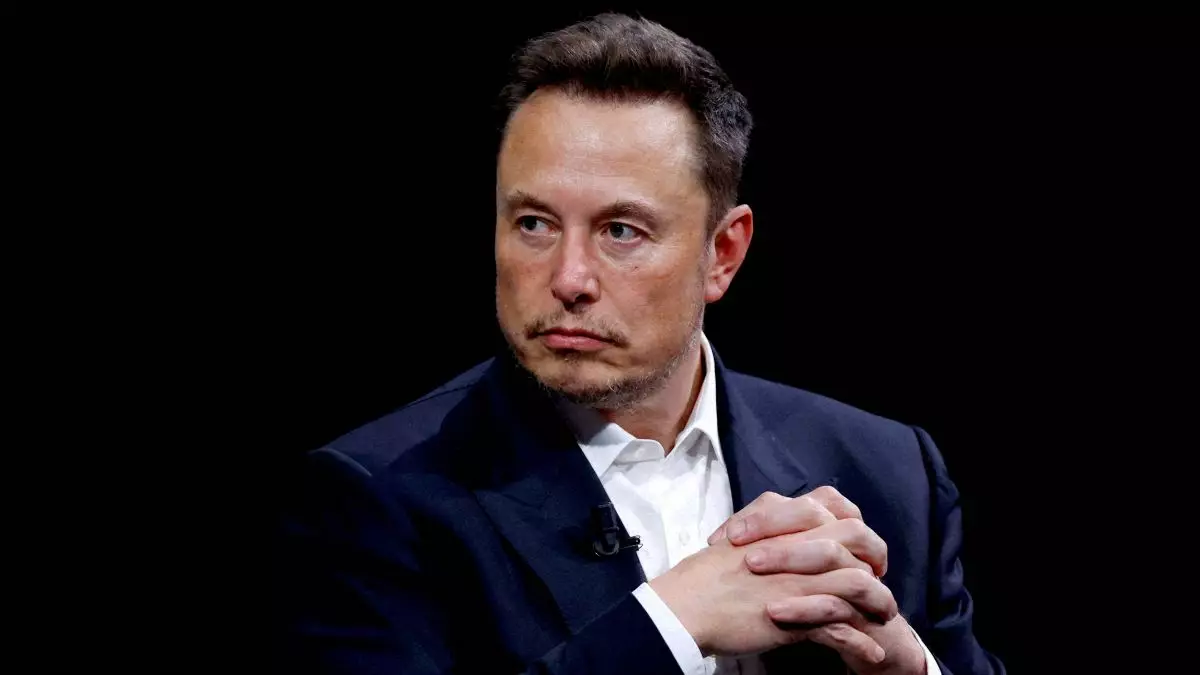In a striking move emblematic of the tensions between high-profile entrepreneurs and regulatory bodies, the U.S. Securities and Exchange Commission (SEC) has initiated steps to impose sanctions against Elon Musk. This action emerged after Musk failed to comply with a court order mandating his testimony in an ongoing investigation into his $44 billion acquisition of Twitter. The SEC’s filing in a San Francisco federal court reflects not only a legal examination of Musk’s actions but also raises pertinent questions about accountability in the realm of corporate governance.
The SEC’s formal notice of its intention to seek sanctions reveals critical insights into the regulatory landscape surrounding high-stakes business dealings. Musk’s non-appearance, communicated only three hours before his scheduled testimony, is seen by the SEC as a blatant disregard for the court order issued on May 31. This incident has significant implications for Musk, who is the CEO of electric car giant Tesla and aerospace manufacturer SpaceX, as it underscores the potential legal ramifications of his publicly unyielding demeanor. The commission accused Musk of utilizing tactics that could be characterized as gamesmanship — a claim that reflects the ongoing scrutiny of his business practices.
Elon Musk’s defense against the sanctions has been multifaceted. His attorney, Alex Spiro, described the SEC’s actions as “drastic” while justifying Musk’s absence due to what he characterized as an unforeseen “emergency.” Spiro contended that Musk’s responsibilities during the launch of SpaceX’s Polaris Dawn mission were paramount, supposedly safeguarding the lives of astronauts involved in the mission. The assertion that Musk’s role as chief technical officer of SpaceX contributed to his inability to testify begs the question of how corporate leaders can balance dual commitments, especially when those commitments undergo sudden changes.
Despite Spiro’s attempts to mitigate the fallout, the SEC remains unmoved, alleging that Musk’s maneuvers contribute less to necessary business functions and more to an impression of evasion. This tug-of-war between Musk’s obligations and the SEC’s expectations underlines a broader dilemma faced by entrepreneurs who tread the fine line between innovation and regulatory compliance.
Regulatory scrutiny of Musk is not a new phenomenon; it builds on a contentious history between the entrepreneur and the SEC. Previous controversies, particularly Musk’s 2018 tweets about taking Tesla private that resulted in a $20 million settlement with the SEC, cast a long shadow over his subsequent corporate dealings. The prior settlement included conditions that Musk would have some of his communications vetted by Tesla’s legal team, a measure that illustrates the SEC’s vigilance in ensuring compliance with disclosure obligations.
Moreover, Musk’s delay in informing investors of his 9.2% Twitter shareholding, which reportedly occurred ten days past the obligatory 5% ownership disclosure mark, positions him precariously, particularly in the eyes of Twitter shareholders who felt blindsided by his actions. Musk has since attributed this delay to misunderstandings concerning SEC requirements, yet critics remain skeptical of the validity of these claims.
The result of this ongoing saga between Musk and the SEC carries implications that extend beyond Musk himself; it reflects on the broader business community, highlighting the increasing tension between regulatory oversight and entrepreneurial freedom. As Musk’s endeavors in the tech and space industries gain unprecedented attention, regulatory bodies are compelled to assert their authority in crafting a market environment that encourages accountability and transparency.
The stakes are high, as Musk’s innovative vision for the future places him in a crucible of accountability that other industry leaders are likely observing closely. The SEC’s actions could serve as a precedent, signaling to entrepreneurs that regulatory oversight will not be easily navigated or ignored.
Elon Musk’s current legal strife is a microcosm of larger issues within corporate governance and regulatory frameworks. As this situation develops, the lessons learned will likely resonate throughout the business world, influencing how future leaders navigate their roles amid a complex web of responsibilities and regulations.



Leave a Reply